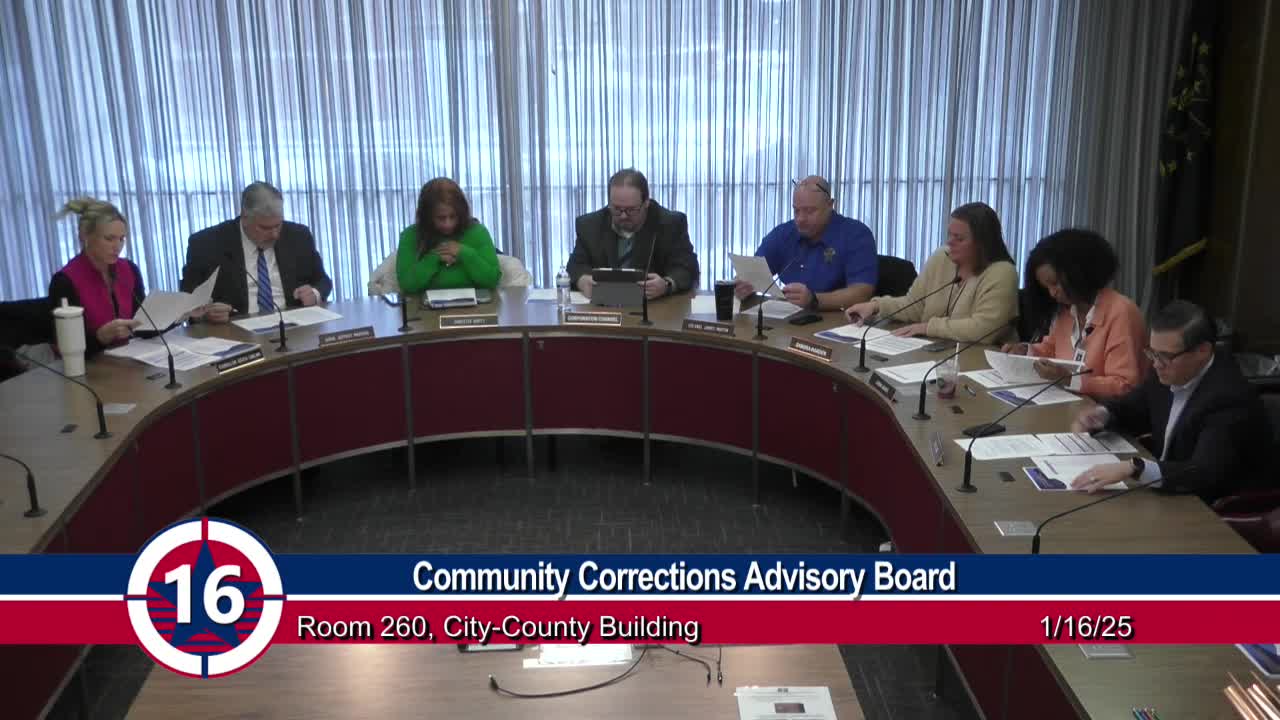Marion County board approves moving grant funds to cover juvenile electronic monitoring and backs FY26 grant application
Get AI-powered insights, summaries, and transcripts
Subscribe
Summary
The Marion County Community Corrections Advisory Board on an unspecified January meeting approved reallocating funds within the juvenile community corrections grant to pay electronic monitoring costs and voted to support applying for the fiscal year 2026 juvenile community corrections grant.
The Marion County Community Corrections Advisory Board on an unspecified January meeting approved reallocating funds within the juvenile community corrections grant to pay electronic monitoring costs and voted to support applying for the fiscal year 2026 juvenile community corrections grant.
Deputy Chief Probation Officer Joshua Herman presented the items, saying staff shortages left Series 100 personnel funds unused for the remainder of the grant cycle and that the office proposed moving those funds to Series 300 to pay electronic monitoring expenses so youth and families would not be charged the fees. The board approved the grant amendment by voice vote and then voted to support the FY26 juvenile community corrections grant application.
The move covers services provided by the Community Adjustment Program, which Herman said has operated since 2007 as an alternative to secure detention. Herman said the program typically operates with two probation officers and one support staff member who conduct field visits and make at least monthly contacts with youth at home or school. Juveniles on monitoring are assigned geofenced zones (for example school or Boys and Girls Club locations) and staff track arrivals and departures; youth in compliance for two weeks may earn a four‑hour incentive pass to spend time with family.
Herman highlighted long‑term changes in detention numbers as context for the program: he said secure detention admissions fell from 4,793 youth in 2005 to 683 youth admitted in 2024, and credited alternatives such as the Community Adjustment Program for helping reduce secure detention use.
Board members asked whether mental‑health and other services available inside the juvenile facility are also available to youth on electronic monitoring. Herman said youth on electronic monitoring have access to more community‑based services and that a probation officer coordinates services and communicates with community adjustment officers about attendance and compliance.
The board approved the two actions by voice vote; roll‑call tallies were not recorded in the transcript.
The chair closed the agenda item after the motions passed. The grant application will proceed according to the normal submission process; the transcript does not record the application’s final award status or timeline.
